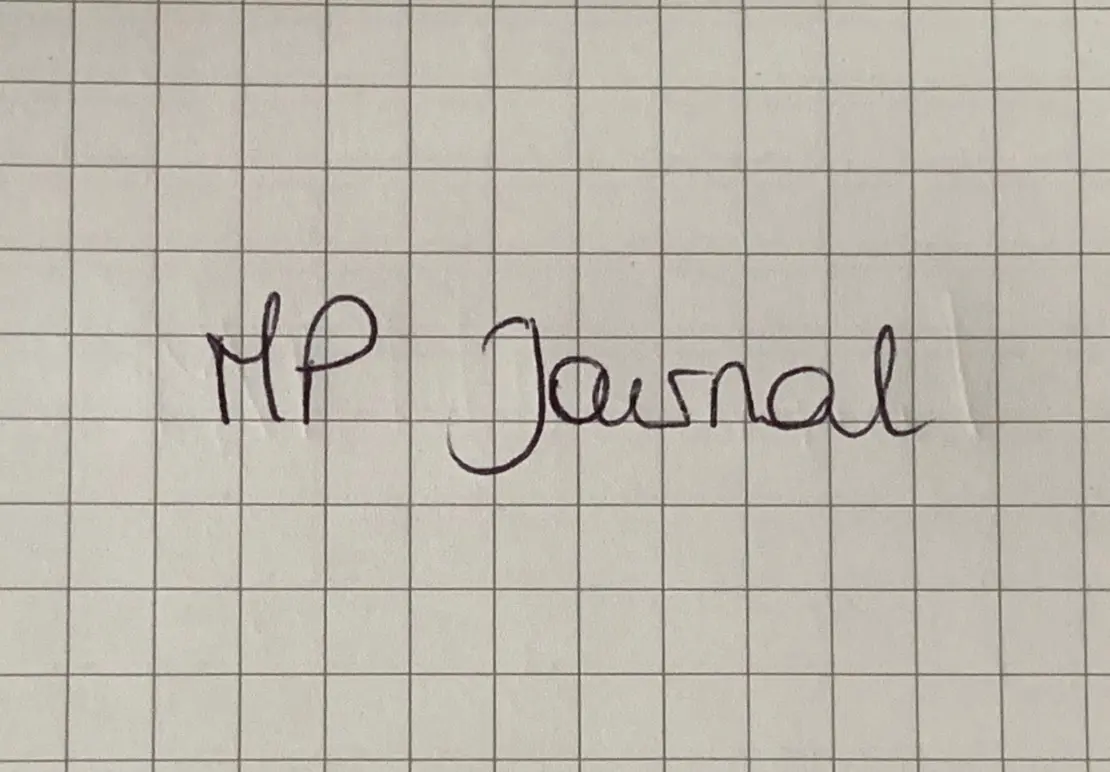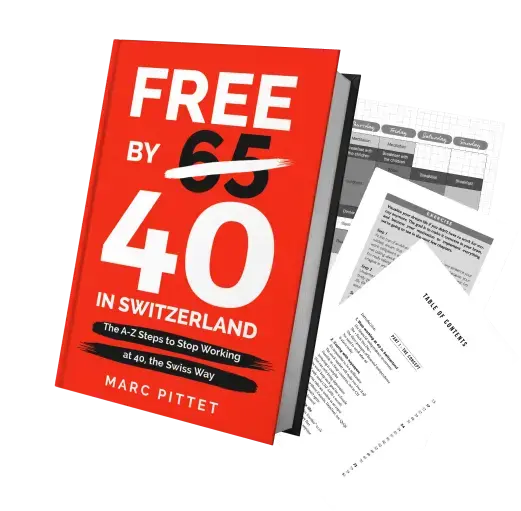Today we continue the interview with Pasquale, this Swiss multimillionaire. We’ll talk about his lifestyle and his investments.
Lifestyle
MP: “Are you FIRE (Financial Independence, Retire Early) today?”
Pasquale: Yes, by far. I could have stopped at 35 years old with my two buildings project, and earn 2-3x more than the average Swiss salary. And this only through my passive real estate returns in Switzerland.
MP: “Did you lead a frugal life when you first started out? Is that still the case today”
Pasquale: No, I wouldn’t say I’m frugal. I would describe myself more as a “normal” saver. I’ve never deprived myself too much. Another adjective that defines me well is “prudent”.
Today, I consider my lifestyle to be higher than average. Not to the maximum of what I could afford, but high.
MP: “At what points in your life have you stepped out of your comfort zone?”
Pasquale: When I was 16 years old and started my apprenticeship. That was no longer a joke, that was real life. The other time I stepped out of my comfort zone was when I started my own business at 24, working all week including Saturdays and Sundays. But I loved it.
MP: “How did you find your passion/path? When you started, were you driven by a passion for something or just by financial reasoning?”
Pasquale: “Appetite comes with eating” as they say. My passion for real estate has grown as I have practiced it.
As explained above, I chose this career after knowing that a job as a soccer player in Switzerland wouldn’t have allowed me to live there all my life… and also out of solidarity with my father, as I wanted to be with him and support him in our family real estate project (construction of my parents’ family home).
MP: “What is the typical week of a Swiss multi-millionaire, from Monday morning to Sunday evening?”
Pasquale: Ahaha, I’ve never been asked that one before! So, let me think. Actually, it’s quite simple.
From Monday to Thursday included, I am present in the company. I take care of the tasks that do not annoy me. Because I can never imagine myself retiring in the way that the average Swiss person thinks of retirement. I couldn’t last more than two days! I’m too afraid of being bored as hell, I need to do business, to have a concrete goal, to build things.
And then, from Friday to Sunday evening, it’s all pleasure/passion stuff (restaurants with friends, massage, walks).
And then during the year, I take a few days off here and there. It’s one of the privileges I’ve always sought, this freedom to be able to leave whenever I want. For example, recently, we organized a trip with friends at the last minute to do a part of the GR20 in Corsica! :)
MP: “Tell us about the women in your life in your 20s and 30s. Were you married or were you focused on your business? Is it worth it to get married before you reach your financial goal?”
Pasquale: In your twenties, it’s very important (at least for me!) to have a woman as a companion, even before creating a family. Being in a relationship gives you a balance, and prevents you from wasting your time with trivia. Another piece of advice from my experience is to have children after 30, and not before. Otherwise, you limit your risk-taking in your twenties, and therefore the opportunities that may come your way.
In summary, a man should go full throttle from the age of 20 to 30 while he is responsible only for himself, and take all the (measured!) risks at that time of his life.
On my side, I was in a relationship in my twenties with the woman who gave me beautiful children. Nevertheless, I split up at 44. Even if it’s not directly linked to my job, it played a role because you deprive your family of certain moments. And working too much can distance a couple.
MP: “How did you manage to reconcile your family life and leisure activities with your job and the building of your net worth? In terms of time to devote to it, and also money to allocate to it (re. feeling of deprivation)?”
Pasquale: We deprived ourselves with some things we couldn’t do as I was working. On the other hand, we never deprived ourselves of vacations. We even took more than normal, as I was the boss of my own company. And we clearly allowed ourselves more things, not far from luxury. It was a conscious choice of life.
*MP: “What advice would you give to the younger generation wishing to become homeowners in Switzerland?”**
Pasquale: Not to be afraid, but to be wary of bankers. Even if you have no choice but to go to them. But I recommend not to go while being limited on the liquidity to have some power of neogotiation, because otherwise they eat you alive! And another piece of advice: you must not let the accession to property in Switzerland result in many deprivations of everyday life, otherwise it’s not even worth thinking about it, you will only be unhappy on the long term.
MP: “Has your appreciation of money/spending changed? For example, did you change your lifestyle much between your first million and your 25th?”
Pasquale: Having money clearly makes you more serene. I used to see it as a tool, but the consumer society makes you calculate all the time. I actually calculate all the time nowadays because I like it.
But I would say that what has changed between now that I have 25 million CHF of wealth, and before when I was working, is that I curb my spending more easily now than before. Before, I was in the job, I was accumulating cash without worrying about my work, so I didn’t think too much about the potential lack of money. But now that I’m putting the brakes on my work momentum, it forces me to put the brakes on everything else, or at least pay more attention to it.
Save money when your pockets are full, not when they are empty…" my father used to tell me
MP: “Did you receive a specific financial education? A lot of explanations of concepts in your family environment? Or did you live in ‘misery’, and didn’t want that for your life?”
Pasquale: Zero education. Well, yes, actually. My father always told me “Save when your pockets are full, not when they are empty…” He never advised me to invest. But saving, yes, in an ant-like way, so that I would always have enough cash to eat in the hard times. Also, my father always taught me that debts were bad: “If you have [money], you buy, if not, you don’t!” It’s only later that I understood the game of money and debts, and the leverage effect possible thanks to the mortgage debt, especially for real estate.
If you have [money], you buy, if not, you don’t!
Investments
MP: “Can you list all the financial tools you are currently investing in? Real estate? ETFs? Others? And with what returns for each? And in what proportions?”
Pasquale: My number one investment vehicle is real estate in Switzerland. After that, I have a few percent of my wealth that I play with in “casino-mode”. Like when I bought oil and saw that it was at 13USD, and sold it 2 months later making 35% of profits.
I did try to diversify my portfolio by going to the stock market. Except that, not knowing much about it, I went through an intermediary each time. And the three times I tried it, I lost. So now, I only invest in what I can control myself without the help of a third party. For me, that means building real estate!
MP: “Did you train specifically in these areas? If so, how?”
Pasquale: I learned about real estate on the job. I learned as much as I could by always working with people older than me. I have an insatiable thirst for learning. And where I finally learned the most was on the construction site, listening to guys 20 years older than me telling me their mistakes, and explaining to me how not to repeat the same ones!
MP: “Where do you store any money that is not in real estate? Bank? Cheap online broker? Swiss private bank? Do you diversify, if so in how many different institutions?”
Pasquale: I don’t have much liquid assets! :D — because, as money comes in, I buy real estate to invest it. And also cars in investment-mode (50%), and the other half in pleasure-mode because I like certain cars. I have just enough liquidity to run with my regular expenses. If tomorrow, my Swiss rental income would not come in anymore, I could last a year with my lifestyle. And all this cash is stored in a “standard” Swiss bank.
MP: What is (are) your most ethical and profitable investment?"
Pasquale: Real estate.
MP: “Do you remember what you invested in each bracket; i.e. from zero to 10k (aka your very first investment, and with how much capital), then 10k to 100k, then 100k to 1 million, then 1 million to 25 million?”
Pasquale: I invested my first capital entirely in the land for my masonry warehouse, then in the land for my house (CHF 120'000).
I then invested CHF 250'000 in this project of building in the East of Vaud. Then afterwards it was each time in new real estate projects according to the opportunities.
And between each investment, I kept everything in savings in the bank.
MP: “In terms of risk management when you started out, were you more of an aggressive ‘all-in’ type, or rather conservative?”
Pasquale: I’ve always been conservative, thoughtful, and careful. When I bought my first property, it was with cash I had. And when I take risks, they are measured so that none can put me out on the street.
MP: “Have you adjusted your investment mix as you got older (less risk)? If so, how? If not, do you plan to do so one day, and if so, how?”
Pasquale: Up until today, I have continually invested in real estate by taking out mortgage after mortgage. But next year, that’s going to change because I’m going to pass the 50 years old mark. I will no longer invest in real estate for yield, but only in real estate development so that all the money I put in, I get it back in the short term.
Also, the other axis of adaptation of my wealth management strategy is going to be to diversify all my mortgage sources, so that I end up with one property per financial institution. Because I can’t repeat enough that certain bankers are assholes, and you should never have all your eggs in one basket, because otherwise they have too much leverage — not to say rudely that they have you by the ba***.
MP: “What’s the riskiest investment you’ve ever made that really gave your net worth an exponential boost? Is it like Donald Trump’s “little million dollar loan” that he found on his way to financial independence?”
Pasquale: This was my first building at the age of 35, acquired with CHF 254'000 of my own money that I had earned with the sweat of my brow!
MP: Next reader question. “Looking back, what was the decision or technique that worked best in his investments (if you have more than one, feel free)? And the one that was the worst?”
Pasquale: My investment technique that has worked the most is to go step by step. Building real estate slowly but surely. I calculated, built, saw that it worked, and then I continued regularly. You shouldn’t be greedy and want everything right away.
My worst investment technique was to speculate on the value of a piece of land close to my home, being too confident that a bid difference of “only” CHF 50'000 could not work against me… In the end, I lost the offer to a less stubborn buyer, although I didn’t want to let the opportunity pass. So if you really want something because it’s a good deal, take a step back, and seize the opportunity.
My best investment technique? Take it step by step, without being greedy, and let time do the rest.
MP: “If you were receiving between CHF 10'000 and CHF 100'000 today as a 30 year old seeking long-term financial independence, where would you invest? And where would you not invest? (i.e. in the economic environment of 2022)”
Pasquale: I would go into rental properties in Switzerland, and only in Switzerland because we have political security and some monetary stability. I wouldn’t invest in cryptos, because, in my opinion, without competence or insider trading, it’s too risky for me.
To explain to you why I would not buy elsewhere than in Switzerland, it is because I tried the adventure of real estate in Italy. And I was a victim of the exchange rate and the purchasing power of people who could not buy… So for me, the safe bet is real estate in Switzerland.
MP: “How much time did it take you (and still does) to manage your investments per day/week? Do you still only do it by yourself?”
Pasquale: I outsource all my property management to a real estate agency. And the rest of the management of my investments — which consists of controlling the payment of the rents on my account mainly — only takes me 1/2 day a week.
MP: “How long does it take you to decide on a new investment (analysis, risk management)? How do you do it concretely?”
Pasquale: With age and experience, quickly. I can see if a real estate investment opportunity in Switzerland is good after looking at it between 30 seconds and 15 minutes. If it looks good, I dig in.
In concrete terms, it’s a 50% mix of expertise in calculating returns, experience, know-how, and competence (type of land, what to build on it), and the other 50% is linked to my knowledge of the real estate market in the region where the opportunity is located.
MP: “Have you ever invested using a leveraged financial system (Lombard loan, mortgage, etc.)?”
Pasquale: Yes, I only invest via mortgage. I borrow at 1%, and that gives me at least 30% leverage.
On average, per operation, I aim for 15-20% return on equity.
But I’m talking about my investments here. Because of my conservative side, my house where I live has no mortgage, because I want to be free. Afterwards, if one of my children explained to me that he understands the risks of a mortgage on his private home, and that he wants to use a mortgage to not block his cash and take advantage of the current low rates to make his savings grow elsewhere, then I would let him do so.
MP: “What do you think about cryptocurrencies? DeFi? Do you invest in them? If so, in what proportions?”
Pasquale: I think that out of 100 people, there is one who knows about it, and the other 99 are fools.
But I like this idea of decentralized finance, especially if it can get the banker out of the way in the middle!!!
Content of part 3/4
In the next part of the interview with Pasquale, we will discuss the techniques to build his fortune, taxes and pension funds, psychological and philosophical aspects of money, and finally his mistakes and lessons learned.







Last updated: March 23, 2022